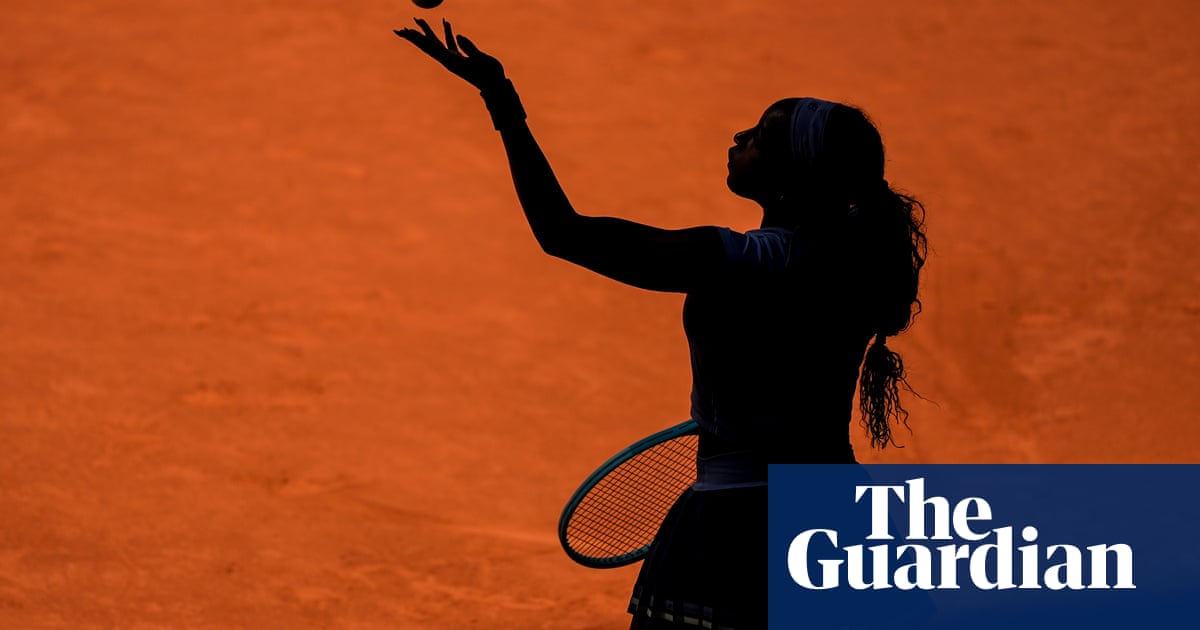Mirra Andreeva has spent the past two years of her life outperforming most teenagers that have ever picked up a tennis racket in the 21st century, yet on a chaotic, surreal Monday inside Caja Mágica, she briefly returned to her roots. During the final change of ends of her fourth-round match against the Ukrainian qualifier Yulia Starodubtseva, as she served for a comfortable victory, she learned of the power outage that had ravaged Spain, Portugal and many nearby countries, ultimately forcing play to be postponed in Madrid.
As matches across the tournament grounds had already come to a halt, the two players were informed that they could play out the subsequent game, but there was a catch: the live electronic line calling system was no longer functioning and there were no line umpires to call upon. They would have to play as if they were back on the junior circuit, calling their own lines with only the umpire there to intervene. Naturally, Andreeva began to feel the pressure.
“It was 15-40 on my serve and I was like: ‘Oh, Mirra. Just please, please do everything in your power to just take this game and finish this match,’” she said, laughing. “I knew that if it would go to 5-5, probably we would have to wait. Probably I would not be here yet and I would just be waiting and we would just see what we would do.”
From double break point down, Andreeva pulled herself together and closed out the match. Just a few metres away on the neighbouring stadium court, her next opponent was also one of the fortunate players:Coco Gauffhad been in the middle of her post-match interview after a dominant win when the power shut down. Gauff noted that she had actually requested to be scheduled as the second match on-court; for once, she was thankful to the WTA supervisors for not honouring that request.
“So far, the toughest thing has been not been able to shower after my match. There’s no running water so I just had to take baby wipes and wipe myself, spray some perfume and call it a day,” Gauff said an hour after her match. “I don’t even think we’ll be able to go back to the hotel as the traffic lights are out. So it’s just crazy how much we depend on electricity. It’s really insane. It puts that in perspective and also makes me think about the humans that lived before electricity and how impressive that is.”
Other players were not quite as fortunate. Grigor Dimitrov, the 15th seed, held a match point against Britain’s Jacob Fearnley at 6-4, 5-2 before serving for the match a game later. By 5-4, the second set back on serve, both players were walking off the court.
An hour later, Dimitrov could be found sitting down alone in the sun in a quiet outdoor spot players use to warm up, smiling to himself at such an surreal turn of events.
“At this point this is only a situation that you can just laugh at if I was on-court because it’s probably not going to happen ever again,” Gauff said. “You can always remember the day the power went out at the Madrid Open.”
As much of Madrid came to a standstill, that chaos was reflected inside the Caja Mágica. Unlike many other tournament sites, the Madrid Open grounds are mostly indoors, below ground level and there is minimal natural light off the court. It meant that much of the grounds were plunged in total darkness. In the communal fan areas, spectators stood shoulder to shoulder, packed like sardines, relying solely on the lights from their phones.
The players themselves had things slightly better. Shortly after the outage, workers swept in with candles, with the players’ restaurant and lounge eventually illuminated by dozens of candles.
Every hour, the player warm-up area seemed to take on a completely different function. Shortly after the power cut, a number of players due on-court had been warming up in total darkness. An hour later, the room was filled with players simply lying on the floor, on the phone and talking with others. Eventually, as they admitted defeat, numerous massage tables appeared and the players ended their days with physiotherapy.
“I was in the gym and it’s super dark, everyone is using the phones with flashlights, but it’s also kind of fun because everyone is talking to each other and the atmosphere is a little more friendly,” Andreeva said.
It soon became clear that there would be no more play on this unforgettable day. As players scrambled to secure a lift home, the line at the transport desk extended almost as long as the Wimbledon queue. Their requests were recorded on pen and paper. With traffic lights ceasing to function in the city, a three-hour journey awaited for those lucky enough to secure a car. Many opted for the one to two hour walk. Once they reached home, this time they would not be able to distract themselves by playing video games, watching TV series or doomscrolling on social media. Not everyone seemed to mind.
“If you take my phone away, I’m completely fine spending time without it,” said Andreeva, who turns 18 on Tuesday. “The only thing I need in my phone right now is a flashlight.”
